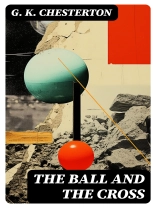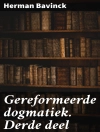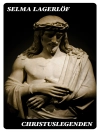G. K. Chesterton’s ‘The Ball and the Cross’ presents an intricate exploration of faith, doubt, and the clash of ideologies set against the backdrop of early 20th-century England. Written in Chesterton’s signature witty and paradoxical style, the narrative follows two protagonists, a fervent atheist and a devout Catholic, whose philosophical feud culminates in an explosive confrontation. The novel is peppered with rich allegorical elements and satirical jabs, reflecting the burgeoning modernist tensions that challenged traditional beliefs, making it a critical commentary on the era’s existential anxieties. G. K. Chesterton, a towering figure in literary circles, was a prolific writer, theologian, and convert to Catholicism, whose experiences profoundly shaped his worldview. His passion for blending theology with literary devices found expression in works that examined the human condition and societal norms. ‘The Ball and the Cross’ serves as a testament to Chesterton’s deep-seated belief in the necessity of faith, showcasing how his own journey from skepticism to belief influenced his narrative. This novel is highly recommended for readers interested in philosophical fiction and the dynamic interplay between belief systems. Chesterton’s masterful storytelling invites readers to engage with timeless questions about morality and existence, rendering it an essential read for anyone seeking to explore the deeper meanings behind faith and reason.
लेखक के बारे में
G.K. Chesterton (1874-1936) was one of the defining writers and thinkers of the early 20th century, known for his prodigious output, which spanned a range of genres including philosophy, criticism, journalism, theology, and, most notably, detective fiction. He is perhaps best remembered for creating the character of Father Brown, a Catholic priest and amateur detective who featured in a series of highly influential short stories. Chesterton led a diverse literary career, characterized by a whimsical style, paradoxical wit, and a deep sense of Christian morality. One of his lesser-known, but nonetheless exemplary works is ‘The Ball and the Cross’ (1909), a novel which explores themes of religious tolerance and ideological conflict through the allegorical and somewhat comedic story of two men, one a devout Catholic, the other a staunch atheist, who vow to duel to the death over their convictions, yet find themselves repeatedly thwarted by a society that has little patience for their absolutism. This work, like much of Chesterton’s fiction, exemplifies his flair for combining light-hearted narrative with serious intellectual and moral inquiry. A powerful influence on both contemporaries and later writers, his work continues to invite analysis and admiration for its insightful commentary on human nature and society.












